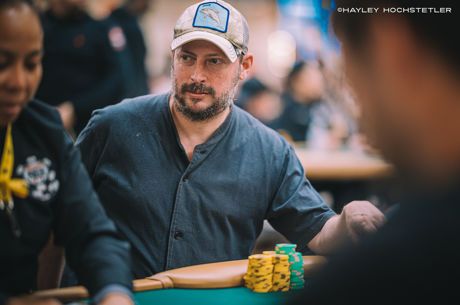Online Poker is Prepared For a Fight

"You never got me down, Ray. You hear me? You never got me down." — boxer Jake LaMotta, as played by Robert De Niro, after taking a beating from Sugar Ray Robinson in Martin Scorsese's film "Raging Bull."
The U.S. Department of Justice likes to consider itself the heavyweight champion of the legal world. When it comes to getting in the ring, the DOJ has no concern for putting on a good show for the crowd. The DOJ wants to end the fight with one quick knockout blow, collect its prize money and bask in the headlines.
The online poker industry took the full force of a punch in June when the DOJ's Southern District of New York seized $34 million in payments that were on the way to approximately 27,000 poker players. Yet the poker sites kept operating as usual and the players kept posting their blinds. Within days if not hours, the $34 million taken was back in the poker accounts of the players courtesy of reimbursements from the poker sites, which showed customer service that would put most U.S. companies to shame.
You never got us down, DOJ.
"If you're the Justice Department, you've got to wonder what you're going to do for an encore because, if you were looking for some shock and awe — trying to get the same effect as when they took down Neteller — I would not say they achieved that goal," said Joe Brennan Jr., chairman of the online poker advocacy group Interactive Media Entertainment and Gaming Association. "This industry is starting to toughen up and took this shot pretty good."
The DOJ used to cause much more damage when taking a shot at the industry. In 2007, the DOJ seized $60 million of poker players' money from Neteller, then the largest processor to get money from players to poker sites. That move impacted the industry for months as sites scrambled to find new ways to handle transactions, many casual players were scared away and American players had money they may had depended on held in limbo for around five months.
In 2006, the mere threat of getting into the ring with the DOJ caused Party Poker, then the largest poker site in the world, to leave the U.S. market.
Through those battles, poker has developed a stronger chin.
The window for the DOJ to bully the industry may be closing. With overblocking from the Unlawful Internet Gambling Enforcement Act expected in December and people's fears of further seizures, Brennan expects processing to migrate offshore and out of DOJ's reach.
"If everyone goes to offshore banking, what is the DOJ going to do," Brennan said. "If you want to cash out from crazypoker.com, or whatever, and the operator sends a paper check from the First Bank of England or Gibraltar or something like that, as long as you're OK with the inconvenience of having to wait up to 30 days for the check to credit to your account, there's nothing they can do. The only contact (the DOJ will have) left with the industry will be the players, and the Wire Act doesn't apply to players. The Illegal Gambling Business Act does not apply to players."
Adjustments by the poker industry won't be able to dodge that feared DOJ left hook forever, but they may be enough to last until legislation to legalize and regulate online poker passes through Congress.
Follow us on twitter for up to the minute news.








